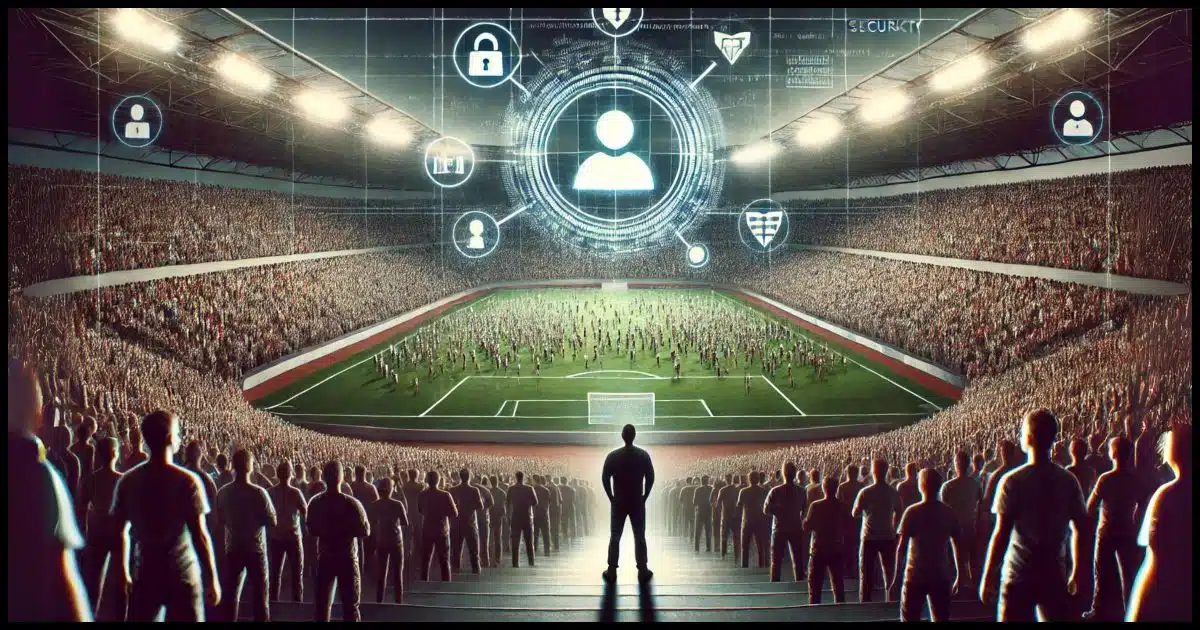Sorry, but you’re not. Neither am I.

When people express concerns about getting hacked, being tracked by advertisers, or cloud services scanning our private documents, one of my common refrains is that you and I simply aren’t interesting enough to be specifically targeted.
“They” aren’t out to get you. You can stop worrying about that.
That’s not to say stuff can’t happen — clearly, it does. But much more often than not, it’s random. It’s the luck of the draw. It’s because we’re part of a larger cohort that is interesting as a group (i.e., that can make someone money).
I think I finally have an analogy to help me explain what I mean.

You're just not that interesting
Advertisers or hackers don’t target individuals; they focus on large groups with common characteristics. Security is important, but anxiety about being personally targeted is misplaced. Stay secure, but don’t get paranoid; most threats are completely random, not personal.
Stuff happens
None of this is an argument to let your guard down. As I said, stuff happens. Security remains important.
What I’m trying to address here is the anxiety that results from feeling like “they” are after you as an individual.
I hear from too many people who are concerned that they, specifically, as individuals, are being tracked, traced, followed, and targeted.
They’re not.1 The worry they feel, and often the extreme, limiting, and sometimes expensive steps they take are unneccessary.
Help keep it going by becoming a Patron.
The big game
Imagine a big, important sporting event in your area. Perhaps it’s the “superb owl”2, the final match in the World Cup, or something else that draws a crowd. Thousands of people show up in person at a stadium to watch this game. (I’ll say 50,000, even though that’s low for some events and high for others.)
Those thousands of people are interesting as a group. Attendance numbers might even make the news, it’s so interesting.
Advertisers love the fact that they have thousands of more or less captive eyeballs in the venue. You’ll see ads plastered around the venue: ads on the sidelines, ads on the big screen, and even sponsorships on drink cups and other disposable materials. Some percentage of that crowd will see and be influenced by those ads.
Do advertisers care if 40% of the crowd buys that special cup they’ve advertised? Very much. Do they care if you’re one of them? Not at all.
And that’s an important distinction: while the crowd is very interesting to advertisers, you as an individual are not. You could be replaced by someone else with no impact whatsoever. What matters is that you’re one of the thousands (with a wallet in your pocket).
It’s the thousands of people that are interesting in this topic. They’re spending money on it and investing themselves in it, and that is extremely interesting to advertisers. They’ll target ads to relate to the event, to things somehow relating to the event, and things that have proven to have some correlation with attending the event.
The internet is a game
These same concepts apply to the internet and what you do on it.
Let’s say you visit a shopping website and browse looking for something. Let’s say you’re in need of a coffee maker.
Advertisers don’t care that you looked at a coffee maker. They care that thousands of people happened to as well. It’s unlikely that they know or care who you are.
Advertisers may then choose to send ads to those thousands of people relating to what they’re apparently interested in: coffee makers. Since you’re one of those thousands, and only because you’re one of those thousands, you see the ads as well. Those ads that “follow you” around the internet? They’re following thousands of people, of which you just happen to be only one.
The same is true for hackers. They’re not targeting you; they’re targeting anyone willing to fall for their phishing attempts or open their malware-laden attachments. They don’t know or care who you are; what’s interesting to them is that if they send out thousands of emails, some percentage of people will fall into their trap.
It’s nothing personal. You’re at risk, exactly like everyone else.
Stay secure
Assuming you have decent security in place, I don’t want you to change a thing. (If you don’t have decent security in place, well, there’s much you should change.)
What I want you to do is to feel a little less paranoid. I want to reduce the anxiety you might feel. I want you to be less afraid.
I want you to have the confidence to use technology effectively.
Do this
Do what’s necessary to stay secure. That’s a given.
But don’t feel like anyone is out to get you specifically.
Ads following you around the internet? It’s not about you, it’s about the thousands of people like you who happened to look at the same things. Seeing failed login attempts on your account? It’s not about you, there are thousands of other people seeing the same thing.
You’re not that interesting. And, honestly, that’s a good thing.
Each week, I try to help by removing confusion and explaining some of the complexities of life in the digital age. Subscribe to Confident Computing! Less frustration and more confidence, solutions, answers, and tips in your inbox every week.
Podcast audio
Footnotes & References
1: Of course, I have to qualify this. In rare cases, you might be interesting. If law enforcement has reason to watch you or an oppressive government is watching, then perhaps you are being tracked individually. But for 99.99% of us, that’s not the case.
2: I obfuscate the name because it’s a trademark that seems to be aggressively enforced. It’s also referred to as “the big game” around these parts.





Good afternoon, Leo –
Very good article: and a practical approach to understanding all this on PCs: just the law of large numbers coming into play to me re this. I would suspect alot of people could become paranoid; and with all the cookies in use today all designed to “help one search & match your interests and needs even more quickly and efficiently on the web”, its no wonder that people people feel and fear as they do. ” ‘A sucker is born every minute’ “, a quote supposedly attributed to P.T. Barnum, even that has not been proven, demonstrates what you are saying. Its not the specific individual, per se, but rather the group you are now in, i.e. looking for baseball equipment, searching for a new car or needing airline tickets. And much of this ties into the multiplicity of “bad actors” out there too. AI will be the next “NICE” monster we all will be (are?) facing more and more. Your common sense displayed here helps to quell some of this if they read this and provide some solace to those already feeling targeted
It’s still invasion of privacy. Because of this election I’ve gotten daily texts and phone calls imploring me to vote. They know my name, phone number, voter registration and whether I voted or not. Maybe they’re just trying to get everyone out to vote, but it’s still invasion of privacy. How did those coffee maker sellers get information BEFORE the internet? I am old enough to remember those days! Back then I never got a phone call telling me that I hadn’t voted yet and had only x amount of hours to do that. Invasion of privacy.